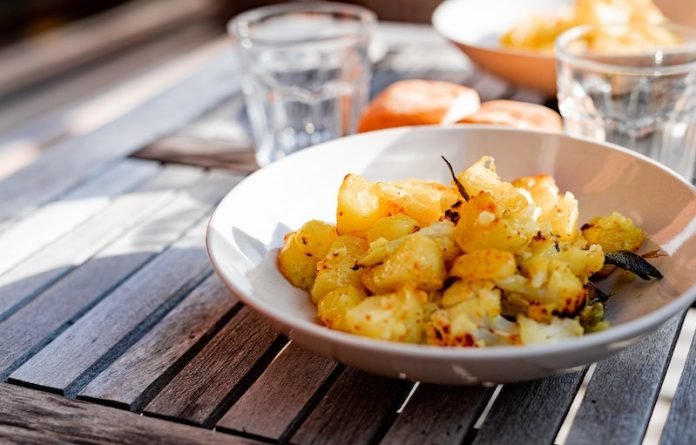
Scientists from Imperial College London recently found that cooking methods play an important role in the link between potato eating and high blood pressure.
Previous studies have reported links between higher potato intake and higher blood pressure (BP) and risks of obesity.
But these studies rarely considered the preparation methods of potatoes, overall dietary patterns, or the nutrient quality of the meals.
These factors may affect the association of potato intake with blood pressure and body mass index (BMI).
In the study, researchers examined potato consumption by amount, type of processing, overall dietary pattern, and nutrient quality of the meals in relation to blood pressure and BMI.
They tested 2696 people aged 40-59 y in the US and UK. The data were from the International Study of Macro- and Micro-Nutrients and Blood Pressure (INTERMAP).
The researchers found no associations with blood pressure or BMI for total potato intake nor for boiled, mashed, or baked potatoes or potato-based mixed dishes.
In US women, a higher intake of fried potato was linked to 2.29 mmHg higher systolic blood pressure and 1.14 mmHg higher diastolic blood pressure, independent of BMI.
Higher fried potato consumption was directly linked to an increase in BMI in US women. These associations were not found in men.
Higher intakes of fried potato meals with a lower nutritional quality were positively linked to systolic and diastolic blood pressure in US women.
No associations with blood pressure were found for fried potato meals with higher nutritional quality.
These findings suggest that fried potato was directly related to blood pressure and BMI in women, but the non-fried potato was not.
In addition, poor-nutrient quality meals were linked to intake of fried potatoes and higher BP.
The study was published in Clinical Nutrition and conducted by Ghadeer S Aljuraiban et al.
If you care about blood pressure, please read studies about drugs for pain and fever linked to high blood pressure, and certain plant-based foods could benefit people with high blood pressure.
For more information about blood pressure, please see recent studies about added sugar in your diet linked to higher blood pressure, and results showing vitamin D could improve blood pressure in people with diabetes.
Copyright © 2023 Knowridge Science Report. All rights reserved.



